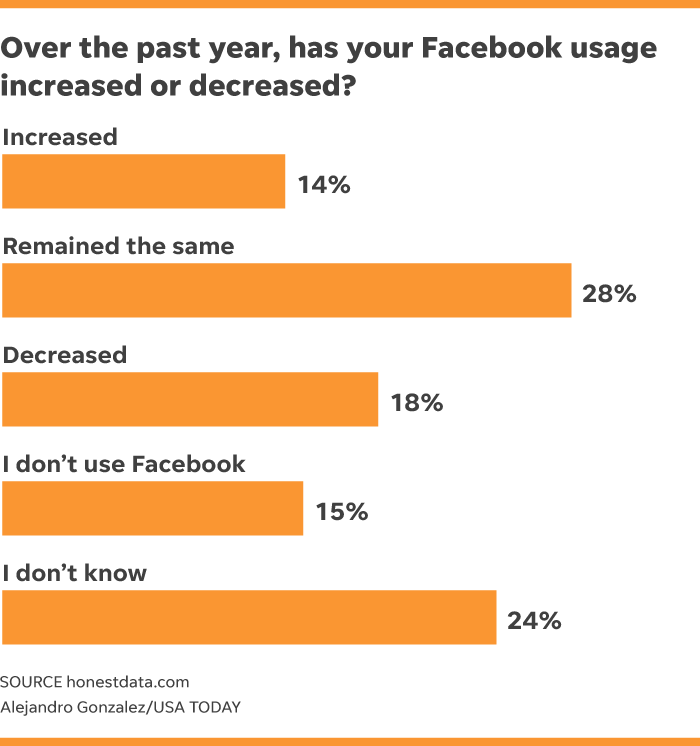By: Jessica Guynn – usatoday.com – Feb. 13, 2018
Mark Zuckerberg says recent changes have reduced the amount of time users spend on Facebook by 50 million hours each day, but those changes aren’t the only reasons, according to users. USA TODAY
SAN FRANCISCO — Mikita Burton has had a Facebook account for nine years, nearly as long as her youngest child has been alive. And, until arguments about the presidential election spread like a contagion throughout her news feed, she averaged three hours a day chatting with friends on the social network.
Now, she tops out at 20 minutes, has deleted the app from her phone and traded in Facebook for Instagram. The 41-year-old mother of three from Overland, Kan., posts on Facebook once a week, catching up with close friends by texting, calling or meeting them for coffee or happy hour.
“The less time I spent on Facebook, the better I felt,” says Burton, who works for the school district.
More than a dozen U.S. users interviewed by USA TODAY say they are starting to question their always-on relationship with the giant social network. Not only are they liking it less, they say they’re scaling back how much time they spend there. And those rumblings of growing Facebook fatigue are starting to show up in tracking data.
Nearly one in five Facebook users — 18.4% — say they are using Facebook less than they did a year ago, according to a new poll of 1,000 people by Honest Data, a market research firm run by pollster Tavis McGinn, who used to work at Facebook. That compares to 14% who said they increased their time and 28% who said their use remained the same. Measurements taken by research firm Comscore also show minutes spent on Facebook in the U.S. are declining.
“They had me at hello back in the day,” says Michael Brito, a 44-year-old digital marketer from Silicon Valley who dramatically reduced how much time he spends on Facebook after his news feed stopped reflecting his interests. “They need to reinvent that.”
Facebook used to be one of the happiest places on earth. People checked in throughout the day, reconnecting with former classmates and far-flung family members to share vacation photos and cat videos, marriage proposals and first steps, the loss of a job or the death of a parent. Along the way to wiring together about a third of humanity, Facebook became an advertising colossus, forging one of the Internet’s most successful businesses valued by investors at a half-trillion dollars.
It’s still everyone’s favorite online hub, with more than 2 billion members logging in monthly. But some of those users have started to stray.
Arguments over fake news and partisan politics are driving pixelated wedges between friends. Watching highlight reels of other people’s lives makes them feel depressed and inadequate. They worry that they’ve become hooked on dopamine hits from likes and comments on their posts. Even worse, some Facebook users sense that the time they spend on Facebook is distancing friends and family members from one another and making everyone feel lonelier.
For years, Brenda Rivera obsessively checked Facebook for updates from friends and family. She describes the experience like a daily soap opera, and she couldn’t bear to miss the latest episode. Then Rivera realized she had developed a full-blown social media addiction. Now she limits herself to 45 minutes a day and tries to stay off Facebook on the weekends.
“I love that I can be connected to friends and family and see events and happenings, interact and laugh or cry. But it also has a dark side,” said Rivera, a 52-year-old photographer and fitness instructor from Cedar Park, Texas. “You don’t even realize it, but you log in just to check your feed and 30 minutes later, you don’t realize you have been on that long.”
To see more of this article, click read more.
Source: Facebook users confess to spending less time on the social network
 Listen Online
Listen Online Watch Online
Watch Online Find a Station in Your Area
Find a Station in Your Area









 Listen Now
Listen Now Watch Online
Watch Online
